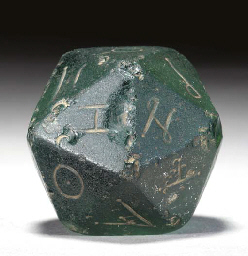At the State of Play conference, Eric Zimmerman described MMORPGs as borderline games since they have no (quantifiable) outcomes (you can continue playing). My game definition also describes MMORPGs as borderline games for the very same reason. In his blog, Greg Costikyan disagrees strongly. There are really two issues here: 1) how to define “game”, 2) why is it so important to be a game or not? “Game” is just a word, isn’t it?
Here’s Greg’s conclusion:
[…] from my perspective, if you produce a definition of “game” that excludes things that most people call “games,” either your definition is clearly wrong, or you need to make a strong argument for why the excluded entities aren’t really games. Simply saying “they don’t come to quantifiable outcomes” is circular, since it is saying “This is my definition of games, these don’t fit, they aren’t games, QED”.
Greg is of course right that Zimmerman’s definition is tautological, but all game definitions are: When you attempt to define something like games, your definition will necessarily be designed to match an a priori idea of what should be included or excluded in the definition. Costikyan even points to the fact that his own game definition comes from his own RPG background. So the cornerstone in Costikyan’s argument will be this one:
They certainly fit my definition of “the game,” but it’s clear to me that they should also fit any reasonable definition of “game.”
Which is of course no better than any other argument here: A reasonable definition of games should include MMORGPs because that’s what a reasonable definition of games would include.
So what’s a poor theorist to do? Why, appeal to something external to the definition, of course!
For example: If we had been discussing whether a whale was a fish or not, one side of the argument would state that whales are fish because they swim in the sea; the other side would counter that whales are mammals because they have lungs and give birth rather than lay eggs. The issue is most easily resolved by using evolution as the measure of all things, showing that whales evolutionarily speaking are mammals etc.
But human culture is always stranger than that, so there are a number of things we can appeal to in order to prove that our personal game definition is the right one:
• We can appeal to consensus: Most people will agree that “game” should be defined like I am doing it here.
• We can appeal to consensus of the enlightened: Knowledgeable game scholars agree that games should be defined like I am doing it here.
• We an appeal to empirical factors: Many “game” stores carry RPGs, hence RPGs are games.
• Or we can (drum roll) include a sense of history in our definition: I called my game definition “The Classic Game model” because it describes a model for games that has been dominant from 3000 BC to approximately 1970 AD. And during that historical period, nearly all “games” had outcomes. MMORPGs differ from the classic game model in that they do not have outcomes, but they do belong to a broader family of games. This does not give us a simple yes/no result, but it gives us a qualified answer that is open about its premises. So there.
*
Another thing of interest is that half of the world seems intent on describing their obviously game-like projects as being non-game – “it’s not a game, it’s an interactive narrative”, while the other half of the world is bent on describing their borderline projects as games.
Is the label “game” something to be avoided or something to be sought at all cost? My feeling is that “game” is moving towards hipness – in a few years time, perhaps people will be using the word “game” as indiscriminately as the words “interactive” and “narrative” have been used lately … And we will be victims of our own success.

